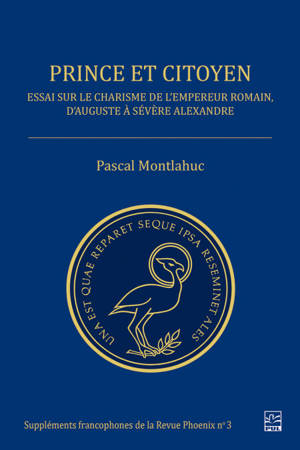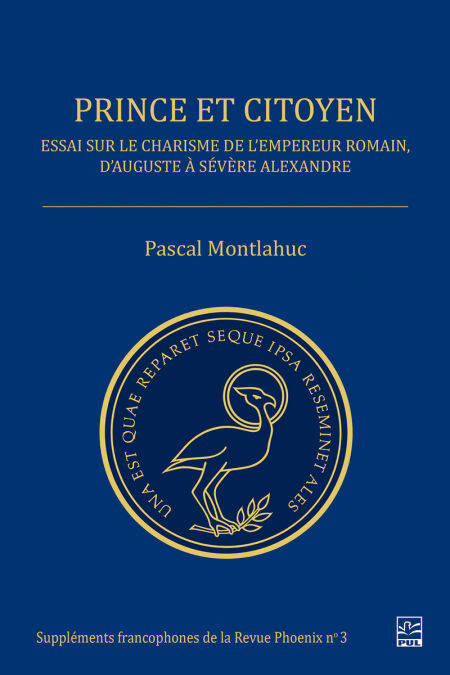
- Afhalen na 1 uur in een winkel met voorraad
- Gratis thuislevering in België
- Ruim aanbod met 7 miljoen producten
- Afhalen na 1 uur in een winkel met voorraad
- Gratis thuislevering in België
- Ruim aanbod met 7 miljoen producten
Prince et citoyen E-BOOK
Essai sur le charisme de l’empereur romain, d’Auguste à Sévère Alexandre
Pascal MontlahucOmschrijving
Fondé sur une utilisation adaptée du concept wébérien de charisme, ce livre interroge un système situé à mi-chemin entre le respect des normes républicaines et la construction d’une monarchie liée à la domination charismatique de l’empereur romain. Il s’agit de considérer l’attitude de princes qui construisaient leur charisme de monarque en agissant comme des citoyens « normaux » ou en adoptant des comportements hérités de la République : plus le prince s’abaissait, plus il s’élevait, et plus il s’élevait, plus il devait s’abaisser. S’il veillait à entretenir une telle dynamique, il était loué comme un bon monarque parce qu’il était un bon citoyen et réciproquement. L’analyse de ce paradoxal « monarque républicain » met en évidence les pratiques du primus inter pares (premier entre ses pairs) et du civilis princeps (prince citoyen), à l’origine d’un charisme différent selon que le prince interagissait avec les primores Vrbis ou avec le reste du populus. Fondée sur une civilitas qui évitait en partie la « quotidianisation » du charisme parce qu’elle réaffirmait périodiquement l’exceptionnalité de l’abaissement impérial, la domination de cet homme à la fois prince et citoyen tirait sa singularité du respect affiché pour les pouvoirs légaux-rationnels et traditionnels au fondement de la cité.
/
Based on an adaptation of the Weberian concept of charisma, this book examines a system situated midway between respect for republican norms and the construction of a monarchy that is linked to the charismatic domination of the Roman emperor. The main objective of this study is to consider the attitude of princes who built their charisma as monarchs by acting like “normal” citizens, or by adopting behaviours inherited from the Republican times: the more the emperor lowered himself, the higher he rose, and the higher he rose, the more he had to lower himself. Analyzing this paradoxical “republican monarch” highlights the practices of the primus inter pares (first among equals) and of the civilis princeps (citizen prince), which gave strength to a different charisma, based on the prince interacting with the primores Vrbis or with the rest of the populus. Founded on a civilitas that partly avoided the “routinization” of charisma by periodically reaffirming the exceptionality of imperial debasement, the domination of this man who was at the same time prince and citizen drew its singularity from the respect shown for the legal-rational and traditional powers at the foundation of the city.
Specificaties
Betrokkenen
- Auteur(s):
- Uitgeverij:
Inhoud
- Aantal bladzijden:
- 450
- Taal:
- Frans
Eigenschappen
- Productcode (EAN):
- 9782766306039
- Verschijningsdatum:
- 4/12/2024
- Uitvoering:
- E-book
- Beveiligd met:
- Digital watermarking
- Formaat:
- ePub

Alleen bij Standaard Boekhandel
Beoordelingen
We publiceren alleen reviews die voldoen aan de voorwaarden voor reviews. Bekijk onze voorwaarden voor reviews.












